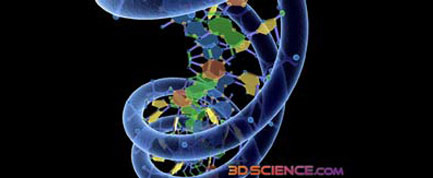Naked DNA Could Prevent Impotence

Gene therapy using "naked DNA" might one day help prevent impotence, scientists now report.
Preliminary findings from the first human trial of gene therapy against erectile dysfunction found the two patients given the highest doses of the treatment had clinically significant and sustained improvements for up to six months.
The therapy might also prove promising against overactive bladder disease, irritable bowel syndrome or asthma, the researchers said.
Erectile dysfunction affects more than half of men aged 40 to 70, and affects nearly three-quarters of men above age 70, according to data from the Massachusetts Male Aging Study. Worldwide some 140 million men are estimated to have some degree of erectile dysfunction, with the numbers expected to increase to more than 300 million men by 2025, due to increases in both life expectancy and diabetes in the population. Half of diabetic men have some erectile dysfunction.
"Men could be much more spontaneous with their sex life with this therapy," researcher Arnold Melman, a urologist at Albert Einstein College of Medicine and Montefiore Medical Center in New York, told LiveScience. "With all other therapies, you have to take a pill or give yourself an injection or something else beforehand."
Melman and his colleagues experimented with a gene dubbed hMaxi-K. The gene creates additional molecules in the smooth muscle cells of the penis that can help potassium ions flow out. This basically relaxes muscle cells in the penis, allowing blood flow required for an erection.
"There appears to be a change in expression of this gene with aging or disease," Melman explained. "So we're actually correcting a problem with this."
Sign up for the Live Science daily newsletter now
Get the world’s most fascinating discoveries delivered straight to your inbox.
- All About DNA
Since there have been adverse results using viruses as agents to transfer genes into humans, the researchers instead chose to transfer the hMaxi-K gene using "naked DNA," or DNA stripped of any proteins. "Naked DNA is the least efficient vector for gene transfer, but the most safe," Melman said.
The therapy was injected into the penises of men aged 42 to 80. The phase I clinical trial has found it safe in the 11 men it tested. Importantly, the transferred gene was not seen in the men's semen, meaning they should not pass it to the partners.
Melman said this therapy "doesn't preclude the use of drugs like Viagra or Cialis. If the gene therapy by itself doesn't cure the problem, maybe other medications at lower doses can."
The findings will be detailed in the journal Human Gene Therapy.
- The Sex Quiz: Myths, Taboos and Bizarre Facts
- Sex Still Satisfying For Men In Their 50s
- A Brief History of Human Sex











